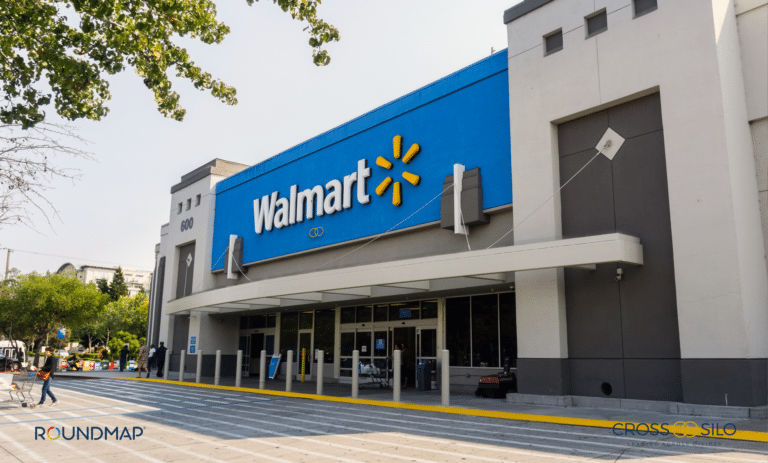In a world where corporate behavior and ethics are under increasing scrutiny, RoundMap® stands out as a guiding light, steering businesses towards a path that is not just about profits but about creating tangible, widespread value and equity. Thus, our framework serves as a business guide and a moral compass for organizations, highlighting the critical importance of equity, responsibility, and holistic approaches in today’s corporate landscape.
Each component within the RoundMap® framework represents a missing link or gap in traditional or even some contemporary frameworks. These innovations aren’t random; they all converge towards the same goal: to close the loop by transitioning from a short-term, profit-focused, and uninspiring linear business operation to a long-term, purpose-driven, cyclical, and widely-supported equitable progression.
Through each cycle, the RoundMap® framework captures and utilizes feedback from its stakeholders, capturing valuable insights that enable the organization to elevate its operation, increase customer value, mitigate adverse effects, and continue searching for opportunities to increase its positive impact. The RoundMap® framework, powered by the PACE formula, goes beyond simply creating cyclical processes; it enables organizations to continuously elevate their operations, paving the way for long-term success and sustainable business practices.
Chapter 1: Beyond Transactions: Unlocking Significance for Customer Success
By emphasizing customer success, a method for ensuring that customers reach their desired outcomes when using an organization’s product or service, RoundMap goes beyond transactional engagements. We understand that customer success involves involvement in the purchase decision, implementation and use of products or services, and customer support. However, in addition to this, we recognize the importance of significance—the meaning attached to the brand or the perception of future value—in helping the customer achieve their success. Significance acknowledges that building long-term relationships and fostering customer loyalty requires going beyond immediate value delivery. It encompasses the notion that customers see a significant future value in the relationship with the organization, justifying their continued commitment. By integrating significance into our customer success approach, the RoundMap framework ensures that organizations not only focus on supporting customers in achieving their present goals but also on cultivating a sense of long-term value and purpose that drives sustained engagement and mutual benefit.
Chapter 2: The Impact Model: Creating Meaningful Change through Positive Impacts
The Impact Model within the RoundMap framework is a powerful tool for organizations seeking to create a positive impact and drive meaningful change. It acknowledges that businesses can create a broader societal imprint beyond monetary gain, encompassing environmental, societal, and financial impacts. The Impact Model consists of four iterative steps: Impact Analysis, Impact Formulation, Impact Implementation, and Impact Evaluation. By incorporating impact measurement and management into their operations, businesses can create positive change, differentiate themselves from their competitors, and improve their long-term performance. The Impact Model is an integral part of the Business Model and, therefore, of the business’s strategy, and requires constant evaluation and adaptation. The Impact Model dimensions capture vital areas where businesses can create a positive impact, including environmental sustainability, stakeholder engagement, diversity, equity and inclusion, supply chain management, and product design and circularity, among others.
Chapter 3: Purpose-Driven Business: Equitable Value Creation for All Stakeholders
The purpose is distinct from the mission, urging organizations to consider their “why deeply.” This approach recognizes that the primary purpose of business extends beyond mere profit but entails the responsibility to create and deliver customer value productively and sustainably, enabling the organization to capture value from customers. However, the secondary purpose, which is equally essential, is to ensure that all stakeholders receive an equitable share of the value captured. This separation of purpose from the mission acknowledges the shifting expectations of younger generations. These individuals seek not only financial success but also a sense of meaning, purpose, and social impact in their work. By embracing a purpose-driven approach, organizations can attract and retain top talent, build a sustainable and trustworthy reputation, and align with the values and aspirations of the younger generation. Purpose becomes a unifying force that guides decision-making and shapes the organization’s identity, inspiring stakeholders and driving equitable practices that benefit all.
Chapter 4: Building the Positive Core: Embracing Strengths for Transformative Growth
Building the Positive Core is a crucial component of RoundMap®’s Manifesto for Equitable Business. The Positive Core is the nucleus of organizational strengths and assets, from embedded knowledge to positive emotions. Recognizing and harnessing these positive elements acts as a catalyst for transformative growth. By building on strengths and focusing on the Positive Core, RoundMap® takes a forward-looking approach that goes beyond merely solving problems of the past. It enables the organization to identify its highest goals and shape its future based on what has worked well. This shift in mindset allows for the creation of a shared vision and the mobilization of resources towards achieving those goals. Instead of being limited by a problem-solving perspective, organizations embracing the Positive Inquiry approach are empowered to leverage their strengths, elevate their performance, and create a positive impact sustainably and inclusively. This emphasis on building and protecting the Positive Core is integral to RoundMap®’s vision of equitable business in the modern era.
Chapter 5: The Circle of Confluence: Collaborative Stakeholder Empowerment
The Circle of Confluence is a stakeholder board, replacing or coexisting with a traditional shareholder board. It embodies equitable collaboration among stakeholders, going beyond traditional hierarchies and silos. It is a collaborative forum where departments, teams, and individuals bring together their unique strengths, perspectives, and resources towards common goals. It creates a harmonious and dynamic environment where ideas and efforts seamlessly flow. The Circle of Confluence can replace the shareholder board, which often only focuses on the interests of the company’s owners without considering the impact on other stakeholders. Alternatively, the Circle of Confluence can coexist as a shadow board, allowing stakeholder representatives to provide input and offer a diverse range of perspectives. Through its collaborative approach, the Consentric Organizational Model aims to end alienation and disengagement often found in specialized and compartmentalized systems, nurturing a culture where each member’s input is valued and utilized for the collective good. This body guides each layer within the model, from the Councilors to the Constellations, in embodying participative leadership and creating a Symphony of Strengths. By upholding core values and embracing the Positive Core, this collaborative body ensures that equitable practices and values permeate every facet of the organization, leading to a more inclusive and mutually beneficial environment for all stakeholders.
Chapter 6: The Distribution Stage: Equitable Value Sharing for Sustainable Success
The Distribution Stage is the ultimate litmus test for the venture’s overall effectiveness, encapsulated by the Return on Venture and the Value Chain Yield. It goes beyond value creation to ensure a fair distribution of the captured value among stakeholders. By emphasizing equitability in the distribution of returns, it ensures that everyone gets a fair share of the pie. The Value Chain Yield provides a final score that summarizes the efficacy and impact of the business across supply and demand chains, but how the yield is distributed speaks volumes about the company’s ethical and social commitments. Effective distribution mechanisms that acknowledge and reward everyone equitably for their contribution to the yield foster a work environment where individuals are proud of their collective contribution, and sustainable growth is in harmony with social responsibility. It fortifies the company’s social contract and builds trust among stakeholders, critical for building sustainable, thriving businesses. The choices made in the Distribution Stage affect the organization’s internal morale, reputation, and role in the larger societal context. The Distribution Stage, therefore, offers a unique opportunity to manifest the company’s core values, like EQuitability, in a tangible way, resulting in a successful and resilient organization.
Equitability in Action: Embracing Purpose, Collaboration, and Equitable Distribution for Sustainable Success
The RoundMap® framework champions a movement towards businesses that are not just profit-driven but are equitable, responsible, and holistic in their approach. Each framework component – from the red components of Customer Success, Impact Model, and Purpose to the Circle of Confluence – fosters a cyclical and inclusive approach to business. This reorients businesses toward a more holistic and interconnected worldview, redirecting attention from mere transactional engagements to establishing enduring and symbiotic relationships.
The Customer Success, Impact Model, and Purpose emphasize putting the customer at the center of everything the business does and striving toward positive impact and purpose instead of just profit. The Value Orchestration Blueprint’s ‘Return on Venture’ and ‘Value Chain Yield’ KPIs confront the common pitfalls of a purely linear and self-centered business mentality by emphasizing fair distribution of captured value.
Building upon these foundational components, RoundMap® recognizes and celebrates the Positive Core – a nucleus of organizational strengths and assets ranging from embedded knowledge to positive emotions. By consciously constructing the future upon the positive core, RoundMap® catalyzes transformative growth and creates opportunities never before thought possible. This shift in mindset enables the organization to identify its highest goals and shape its future based on what has worked well in the past. The Positive Core approach empowers organizations to leverage their strengths, elevate their performance, and create a positive impact sustainably and inclusively.
The Circle of Confluence acts as a stakeholder board that replaces or coexists with a traditional shareholder board, embodying equitable collaboration among stakeholders and going beyond traditional hierarchies and silos. In upholding core values and embracing the Positive Core, this collaborative body ensures that equitable practices and values permeate every facet of the organization, leading to a more inclusive and mutually beneficial environment for all stakeholders.
When viewed holistically, these components champion a movement towards businesses that are equitable, responsible, and holistic in their approach. The RoundMap® framework is not just another business framework, but it’s a manifesto for equitable business in the modern era. It ensures sustainability and infuses a sense of reciprocity and shared value in the entire business ecosystem. By integrating these loop-closing elements, RoundMap® reorients businesses towards a more enduring and symbiotic approach that is not just about extraction but about giving back, renewing, and regenerating.




